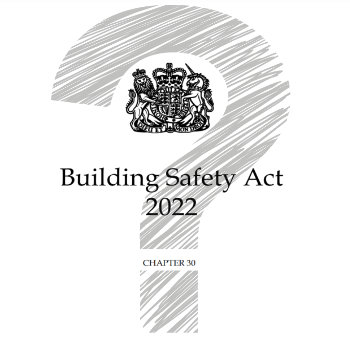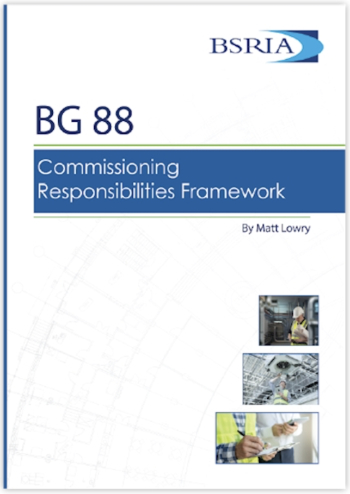Assignment of construction contracts
Assignment is the right to transfer 'choses in action' defined as 'all personal rights of property which can only be claimed or enforced by action and not by taking physical possession'.
This definition includes benefits arising under a construction contract such as right to payment, but not burdens such as the obligation to pay. The definition also includes claims for breach of contract.
A common error is to assume that the right to assign must be agreed as part of a contract, like a novation. Assignment is a unilateral right created by statute, Section 136 of The Law of Property Act 1925 or by the law of equity (law developed by the Chancery Division of the High Court of England and Wales).
Whilst not a contractual right, the right to assign can be excluded, or restricted, by contract, for example, it is common in collateral warranties to restrict to one assignment without the written permission of the warrantor.
Under Section 136 of The Law of Property Act 1925 the formalities required to create an effective legal assignment are:
- An absolute (i.e. not part of a debt or by way of charge only) assignment in writing signed by the assignor.
- A debt or other legal right of action.
- Express notice in writing to the debtor (no particular form of wording is necessary).
An assignment which fails to comply with the above formalities may, nevertheless, still be effective as an equitable assignment. Indeed an equitable assignment may be verbal. There is no substantial difference between legal and equitable assignments (though, of course it will be easier to prove a legal assignment), there are, however, procedural differences.
The assignee of a legal assignment sues the debtor in the assignee's own name. The assignee of an equitable assignment of a legal chose in action or an equitable chose that is not absolute, must join the assignor (as claimant if the assignor agrees, or defendant if not ) into any legal proceedings.
The effect of a legal or equitable assignment is to put the assignee in the same position as the assignor in respect of the benefits (not burdens) arising from the original transaction with the debtor. Consequently:
'... a debt which accrues due before notice of assignment is received, whether or not it is payable before that date, or a debt which arises out of the same contract as that which gives rise to the assigned debt, or is closely connected with that contract, may be set off against the assignee.'
(Ref. Business Computers Ltd v Anglo African Leasing Ltd.)
A counterclaim for unliquidated damages may also be set off by the debtor, but only to the value of the assigned debt. Further when there have been successive assignments the debtor cannot set off against claims by the ultimate assignee, counterclaims which the debtor has against intermediate assignees.
The Scottish law equivalent is assignation.
[edit] Related articles on Designing Buildings
- Alienation covenant.
- Appointing consultants.
- Assignation.
- Assignment of choses in action.
- Assignment of debt.
- Construction contracts.
- Difference between assignment and novation.
- Difference between collateral warranties and third party rights.
- Legal and equitable assignment.
- Novation.
- Novation agreement.
- Privity of contract.
- Privity of title.
- Proprietary information.
- Recovery of third party losses.
- Reliance letter.
- Restrictions on assignment.
- Reverse premium.
- Set off.
- The Contracts (Rights of Third Parties) Act.
- Title.
- Warranty.
[edit] External references
Featured articles and news
Who, or What Does the Building Safety Act Apply To?
From compliance to competence in brief.
Commissioning Responsibilities Framework BG 88/2025
BSRIA guidance on establishing clear roles and responsibilities for commissioning tasks.
An architectural movement to love or hate.
Don’t take British stone for granted
It won’t survive on supplying the heritage sector alone.
The remarkable story of a Highland architect.
The Constructing Excellence Value Toolkit
Driving value-based decision making in construction.
Meet CIOB event in Northern Ireland
Inspiring the next generation of construction talent.
Reasons for using MVHR systems
6 reasons for a whole-house approach to ventilation.
Supplementary Planning Documents, a reminder
As used by the City of London to introduce a Retrofit first policy.
The what, how, why and when of deposit return schemes
Circular economy steps for plastic bottles and cans in England and Northern Ireland draws.
Join forces and share Building Safety knowledge in 2025
Why and how to contribute to the Building Safety Wiki.
Reporting on Payment Practices and Performance Regs
Approved amendment coming into effect 1 March 2025.
A new CIOB TIS on discharging CDM 2015 duties
Practical steps that can be undertaken in the Management of Contractors to discharge the relevant CDM 2015 duties.
Planning for homes by transport hubs
Next steps for infrastructure following the updated NPPF.
Access, history and Ty unnos.
The world’s first publicly funded civic park.
Exploring permitted development rights for change of use
Discussing lesser known classes M, N, P, PA and L.
CIOB Art of Building photo contest 2024 winners
Fresco School by Roman Robroek and Once Upon a Pass by Liam Man.

























Comments